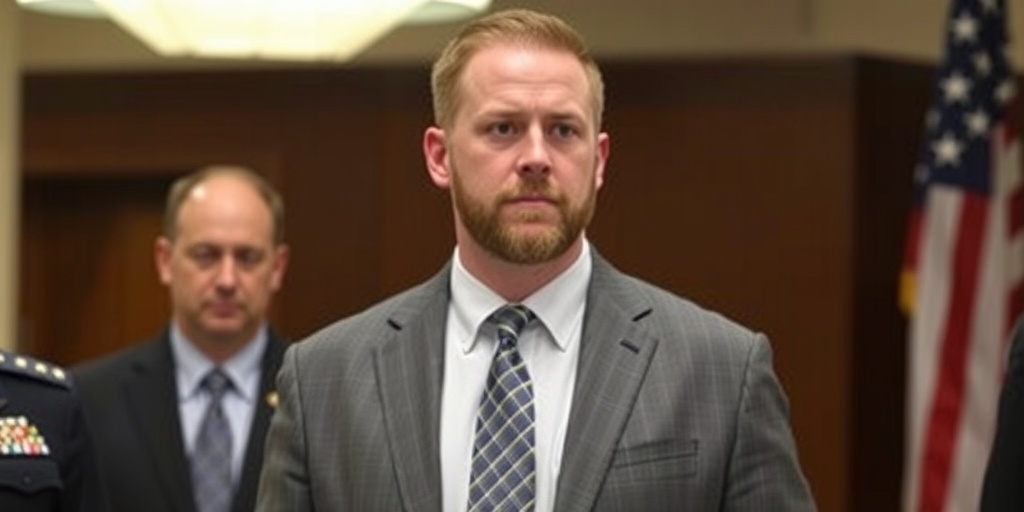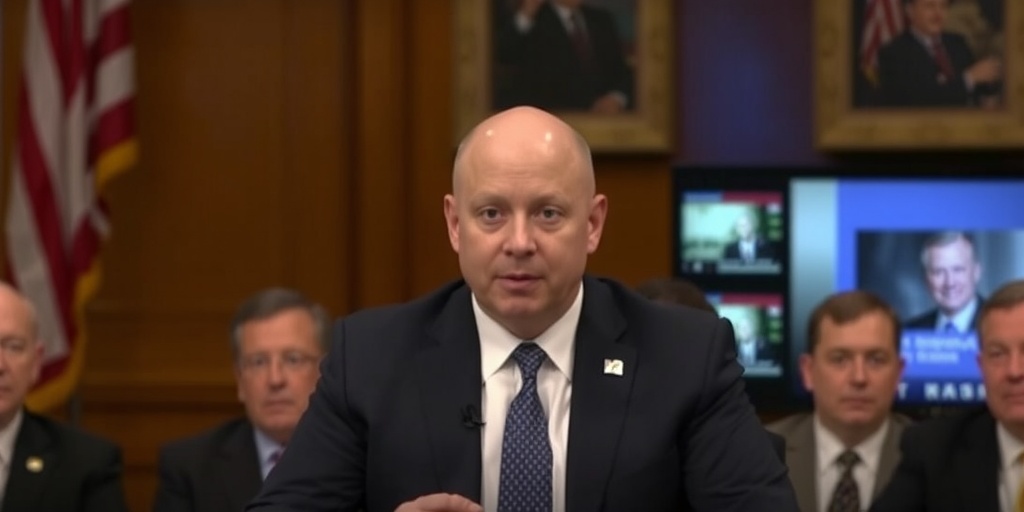Now Reading: Defendant in U.S.S. Cole Bombing Accepts Plea Deal
-
01
Defendant in U.S.S. Cole Bombing Accepts Plea Deal
Defendant in U.S.S. Cole Bombing Accepts Plea Deal

A Saudi prisoner, Abd al-Rahim al-Nashiri, accused of orchestrating the devastating bombing of the U.S.S. Cole in 2000, has signed a plea agreement to avoid facing the death penalty, his attorney announced on Monday. This news emerges at the beginning of a two-week hearing regarding his war crimes trial, marking a significant development in a case that has been dragging on for years and is fraught with complexities.
Abd al-Rahim al-Nashiri, 60, has been in U.S. custody since 2002, facing a series of charges related to one of the deadliest attacks on American military personnel in recent history. The assault on the U.S.S. Cole occurred on October 12, 2000, when two suicide bombers detonated explosives from a small boat during a refueling stop in Yemen, killing 17 U.S. sailors and injuring many others. Al-Nashiri is alleged to have played a crucial role in planning and executing the attack, which has made him the focus of the longest-running death penalty case at Guantánamo Bay.
During the initial proceedings, his lawyer, Allison F. Miller, described the atmosphere at the Pentagon as chaotic due to anticipated staff and budget cuts, further complicating the trajectory of Nashiri’s case. Although a plea agreement has been reached, the military chain of command has yet to formally present it to Defense Secretary Pete Hegseth for consideration under the military commission system’s current protocols.
The judge overseeing the hearings has scheduled the trial to begin on October 6, just days before the 25th anniversary of the bombing. However, Miller is pushing to suspend proceedings until September 2026 to allow time for resolving the plea offer or to adequately prepare for an alternative trial. The protracted nature of this case has continued to frustrate prosecutors, who have struggled since Nashiri’s arraignment in 2011 to bring the case to trial. Reasons for the ongoing delays have included legal challenges regarding the evidence, a defense team walkout, and a judge’s decision to exclude Nashiri’s confessions—obtained under what has been deemed torture—from the proceedings.
As the years passed, many of the parents of those sailors lost in the attack have passed away, and several survivors and victims’ families have chosen to refrain from making the journey to Guantánamo Bay to attend the slow-moving pretrial proceedings, further underscoring the emotional toll of the drawn-out case.
On the day of the announcement, only James G. Parlier, a retired Navy command master chief who survived the bombing, was present in the courtroom. For years, Parlier had expressed frustration with the prolonged delays and the push for a capital trial. However, he indicated a shift in perspective, suggesting he supports resolving the case via a plea deal, despite potential displeasure from some former shipmates. “We’ve got to close that chapter of our lives,” Parlier stated, acknowledging the emotional weight that the case has carried for so long. He added that he had been informed the proposed sentencing range could be between 20 years to life imprisonment and expressed acceptance of that outcome, emphasizing that by the time Nashiri’s sentence was served, he would be well into his 80s.
Miller’s subsequent filing requests that the judge suspend proceedings until July 4, 2026, or until after significant reductions within the federal workforce take effect, a scenario linked to Elon Musk’s initiatives. She highlighted feelings of anxiety and disruption within her staff’s ability to prepare for trial, exacerbated by the cancellations of potential hires during the transition from the previous administration. In addition, some of her team members are facing uncertainty regarding their job continuity.
Defense lawyers intend to call various witnesses, including Hegseth and Musk, to testify about the relevant changes in personnel and defense policies. However, military prosecutors are opposing these testimonies and plan to present their arguments against them in the ongoing hearings.
In light of the political climate and ongoing challenges, the presiding judge, Colonel Matthew S. Fitzgerald, acknowledged the difficulties inherent in the military commission process. The military commission system also has experienced interruptions as the oversight role for plea agreements shifted from the Defense Secretary to various authorities within the Department of Defense over the years.
The lead prosecutor declined to comment on whether he endorsed the plea agreement, although Miller stated in court that he did support it. The resolution of this case through a plea agreement could offer a conclusion to a chapter of painful memories for many, allowing both the victims’ families and the defendant to reach a form of closure after years of legal limbo.
Stay Informed With the Latest & Most Important News
Previous Post
Next Post
-
 01New technology breakthrough has everyone talking right now
01New technology breakthrough has everyone talking right now -
 02Unbelievable life hack everyone needs to try today
02Unbelievable life hack everyone needs to try today -
 03Fascinating discovery found buried deep beneath the ocean
03Fascinating discovery found buried deep beneath the ocean -
 04Man invents genius device that solves everyday problems
04Man invents genius device that solves everyday problems -
 05Shocking discovery that changes what we know forever
05Shocking discovery that changes what we know forever -
 06Internet goes wild over celebrity’s unexpected fashion choice
06Internet goes wild over celebrity’s unexpected fashion choice -
 07Rare animal sighting stuns scientists and wildlife lovers
07Rare animal sighting stuns scientists and wildlife lovers





















